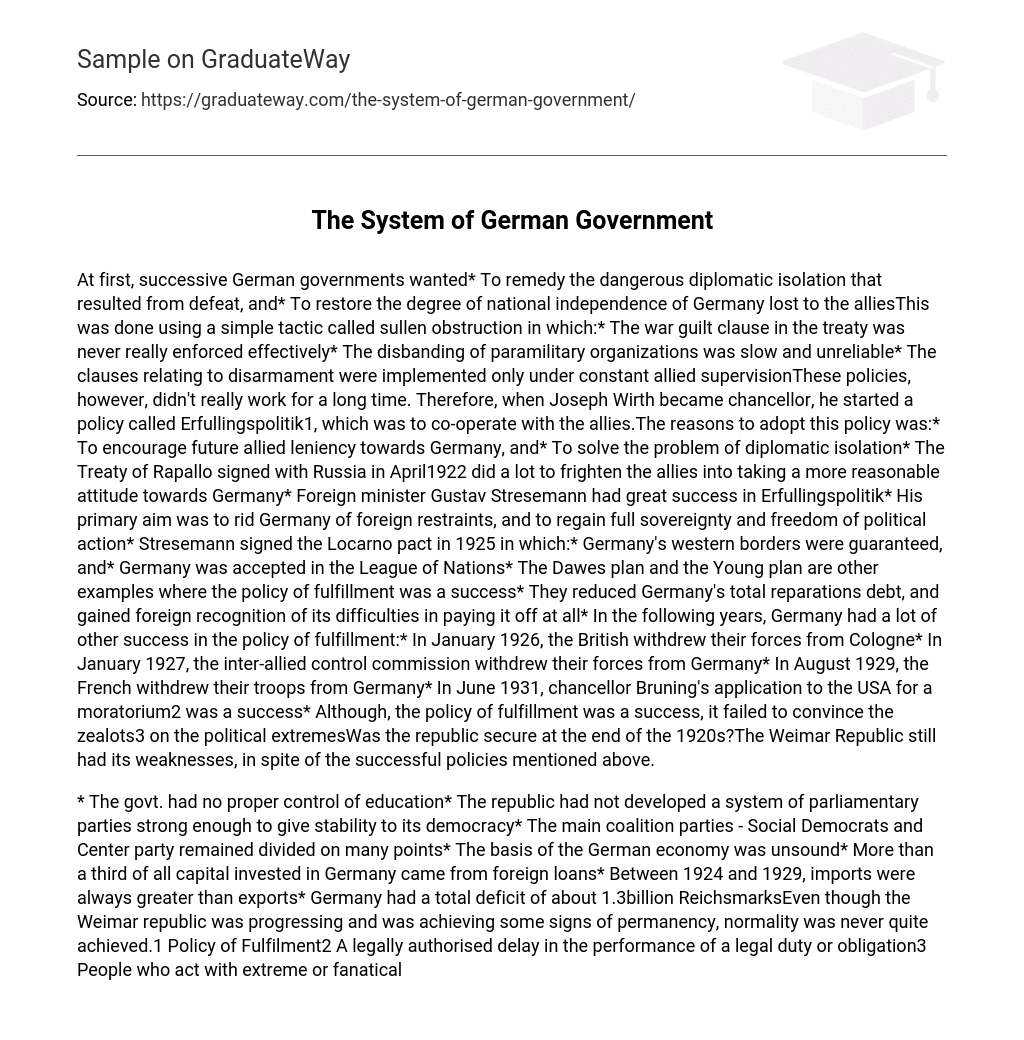At first, successive German governments wanted* To remedy the dangerous diplomatic isolation that resulted from defeat, and* To restore the degree of national independence of Germany lost to the alliesThis was done using a simple tactic called sullen obstruction in which:* The war guilt clause in the treaty was never really enforced effectively* The disbanding of paramilitary organizations was slow and unreliable* The clauses relating to disarmament were implemented only under constant allied supervisionThese policies, however, didn’t really work for a long time. Therefore, when Joseph Wirth became chancellor, he started a policy called Erfullingspolitik1, which was to co-operate with the allies.The reasons to adopt this policy was:* To encourage future allied leniency towards Germany, and* To solve the problem of diplomatic isolation* The Treaty of Rapallo signed with Russia in April1922 did a lot to frighten the allies into taking a more reasonable attitude towards Germany* Foreign minister Gustav Stresemann had great success in Erfullingspolitik* His primary aim was to rid Germany of foreign restraints, and to regain full sovereignty and freedom of political action* Stresemann signed the Locarno pact in 1925 in which:* Germany’s western borders were guaranteed, and* Germany was accepted in the League of Nations* The Dawes plan and the Young plan are other examples where the policy of fulfillment was a success* They reduced Germany’s total reparations debt, and gained foreign recognition of its difficulties in paying it off at all* In the following years, Germany had a lot of other success in the policy of fulfillment:* In January 1926, the British withdrew their forces from Cologne* In January 1927, the inter-allied control commission withdrew their forces from Germany* In August 1929, the French withdrew their troops from Germany* In June 1931, chancellor Bruning’s application to the USA for a moratorium2 was a success* Although, the policy of fulfillment was a success, it failed to convince the zealots3 on the political extremesWas the republic secure at the end of the 1920s?The Weimar Republic still had its weaknesses, in spite of the successful policies mentioned above.
* The govt. had no proper control of education* The republic had not developed a system of parliamentary parties strong enough to give stability to its democracy* The main coalition parties – Social Democrats and Center party remained divided on many points* The basis of the German economy was unsound* More than a third of all capital invested in Germany came from foreign loans* Between 1924 and 1929, imports were always greater than exports* Germany had a total deficit of about 1.3billion ReichsmarksEven though the Weimar republic was progressing and was achieving some signs of permanency, normality was never quite achieved.1 Policy of Fulfilment2 A legally authorised delay in the performance of a legal duty or obligation3 People who act with extreme or fanatical enthusiasm, esp.
in following a political ideal





